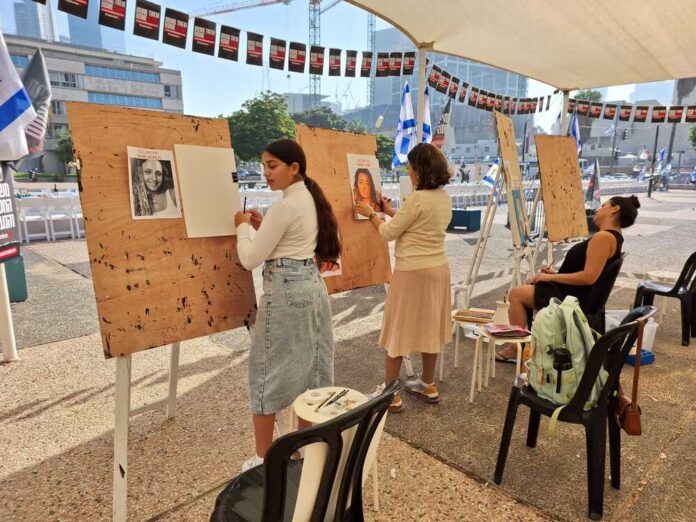Romi Gonen is more than a poster child for Israeli hostages; Yarden Gonen, her sister, stressed that.
Gonen’s family staged a four-day march from southern Israel to Jerusalem to seek the release of Romi and the roughly 134 hostages who are still detained.
When asked about the four-day trip from the Nova parking lot near Reim, Kibbutz Reim, where it all started, Gonen said she and her family had been among many others. The whole country rallied behind each other as they traveled, sharing meals and clothes and even sleeping in tents together.
The estimated number of participants in the march to Jerusalem was twenty thousand. Nearly 1,200 people, mostly civilians, were killed in the strike on October 7. In addition, gunmen from Hamas abducted some 240 people and brought them to the Gaza Strip.
At the end of November, amid a short ceasefire, the Biden administration reportedly worked closely with Israel, Qatar, and Egypt to secure the release of 105 hostages held by Hamas. The majority of the captives that were let free were minors, women, and people from other countries.
Gonen has heard nothing new about her sister in the last ninety-four days. She brought up the fact that Hamas is using the relatives of captives like pieces in a chess game.
Over 70,000 Palestinians have been injured, and over 30,000 have died in the five-month fighting, according to the Hamas-controlled Gaza Health Ministry. In recent months, talks to cease hostilities have stalled, with the possible release of more detainees being considered.
Nonetheless, a top Biden administration official hinted on Saturday that a potential second ceasefire accord is in the works. A framework agreement is in place. For the most part, Israelis have accepted it. Today marks the beginning of a six-week truce in Gaza if Hamas agrees to free a specific group of captives who are particularly vulnerable.
The sick, wounded, elderly, and women have been the focus of these negotiations, which have been going on for some time, the official said.


















